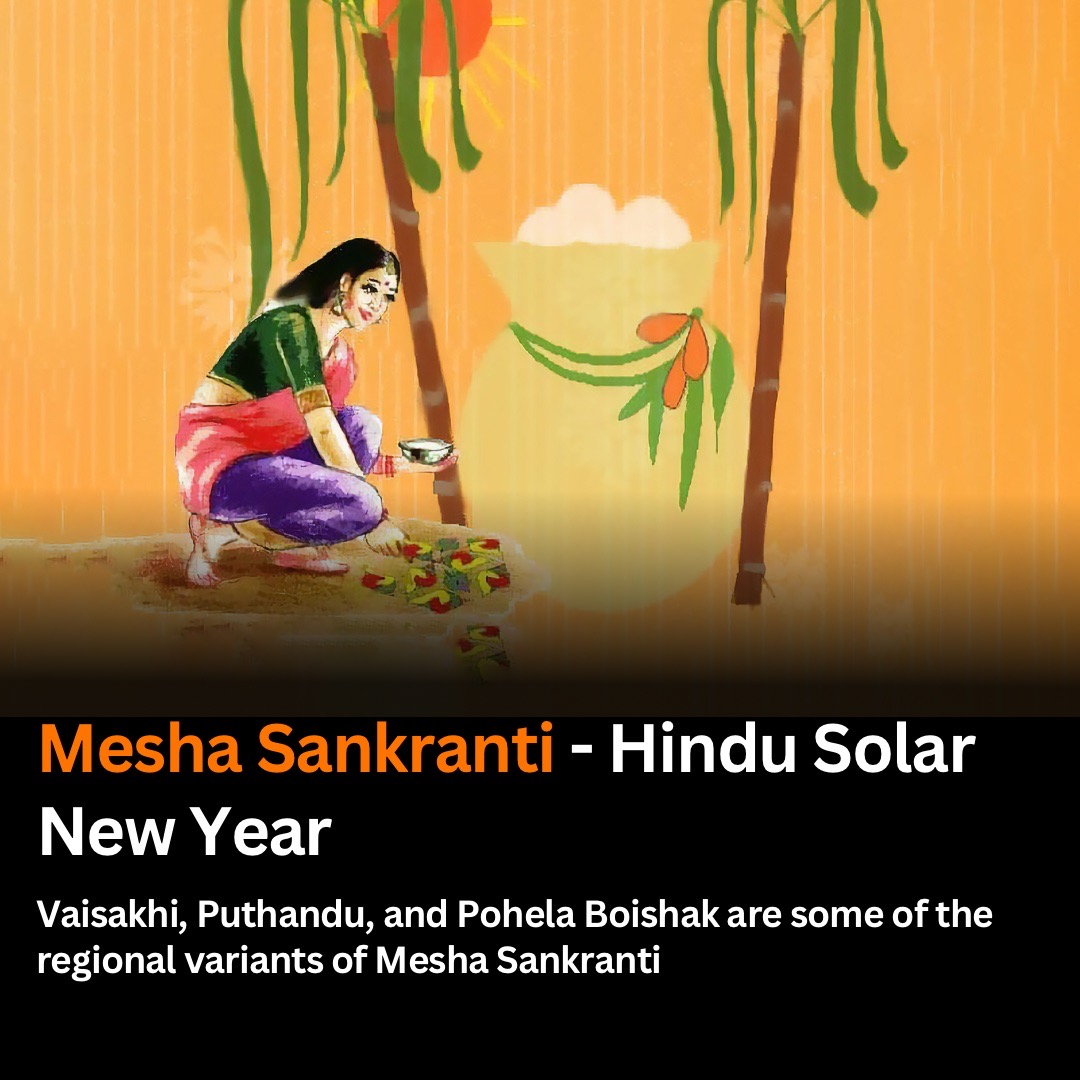The Sankranti (transit) of the Sun into Mesha Rashi (Taurus) is celebrated as the New Year by Hindu communities that follow the Sauramana (solar) Hindu calendar. This largely includes the Assamese (Rongali Bihu), Bengali (Pohela Boishak), Bodo (Bwisagu), Maithali (Jur-Sital), Malayalam (Vishu), Odia (Pana Sankranti), Punjabi (Vaisakhi), Tamil (Puthandu) and Tullu (Bisu) Hindu communities. The name Vaisaikhi or Boishak is derived from the Sanskrit ‘Vaishak’ – the name of the Hindu Solar month that begins on this day. In most of these regions, the festival is also marked as a harvest festival.
In addition to Hindus, Mesha Sankranti has also been adopted as a festival by Sikhs and some Buddhist communities. It is also recognised as New Year and a national holiday in several countries across the Indian Subcontinent and Indo-China that either follow or have been influenced by Hinduism such as Nepal, Bangladesh, Sri Lanka, Laos and Thailand. The Thai New year; ‘Songkran’ involves the spraying of scented water over loved ones, in a similar manner to how Holi is marked in Bharat earlier in the season.
Mesha Sankranti usually occurs on 13th, 14th or 15th April. Differences in the date of this festival between Hindu communities reflect variations in how the first day of the year is determined.

